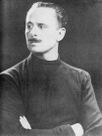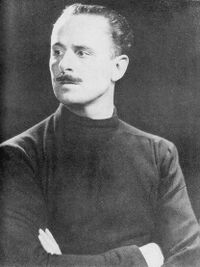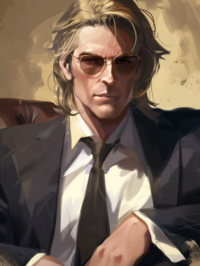User:Tahomaru/sandbox2
President of Eulabia
| President of the Commonwealth of Eulabia | |
|---|---|
| Presidential Administration of Eulabia | |
| Style | Mr President (informal) His Excellency (diplomatic) |
| Status | |
| Member of |
|
| Seat | Lunden, Eulabia |
| Appointer | Popular vote |
| Term length | Six years, renewable once consecutively |
| Constituting instrument | Constitution of Eulabia |
| Precursor | Presidency of the Eulabian Union |
| Inaugural holder | Oswald Mosley |
| Formation | 2012 (Commonwealth of Eulabia) |
| Deputy | Prime Minister |
The president of Eulabia, officially the president of the Commonwealth of Eulabia, is the executive head of state of Eulabia, and the commander-in-chief of the Eulabian Armed Forces. It is the highest office in Eulabia.
The powers of the presidency include: execution of law, appointing ministers, and members of the judiciary, and negotiating treaties with foreign powers. The president also has the power to grant pardons and reprieves, and to dissolve the National Assembly. The president also appoints the prime minister, who directs domestic policy of Eulabia alongside the president
The president is elected directly through a popular vote to a six-year term and can be reelected once consecutively. In all cases where the president of Eulabia is unable to fulfill their duties, those duties shall be temporarily delegated to the prime minister of Eulabia, who becomes acting president of Eulabia. The first and incumbent president is Oswald Mosley, having assumed office on 1 January 2013.
History
From its formation in 1958 until 2008, the Eulabian Union was led by a collective head of state known as the Presidency. Following the 2008 coup d’état and subsequent civil war, the Transitional Council assumed responsibilities of the disbanded Presidency. The instability and perceived ineffeciency of the collective leadership were generally preceived as contributing factors to the civil war. In response, the Transitional Council focused on establishing a more centralised form of leadership. The main discussion was not on the necessity of a single president as head of state but on the scope of presidential powers and the choice between a presidential or parliamentary system. After extensive discussions, a semi-presidential system was selected, which was subsequently approved in a national referendum in April 2012.
The new constitution introducing the role of the president as the sole head of state was enacted on 9 May 2012. Initially, Prime Minister Oswald Mosley served as acting president until the presidential election. He was elected and officially inaugurated as president on 1 January 2013, becoming the first president of the Commonwealth of Eulabia.
Election
Eligibility
A presidential candidate must be a citizen of the Commonwealth of Eulabia who is at least 35 years old and has permanently resided in Eulabia for at least 20 years. The Eulabian Constitution limits the number of consecutive terms to two.
Electoral process
Eulabian presidential elections are conducted using run-off voting, where the candidate must win more than 50% of the vote to be elected. If the candidate does not win the first round, a second round is held between the two most successful candidates. So far, no second round has been held in Eulabian presidential elections. Both presidential elections were won by Oswald Mosley with more than 50% votes in the first round.
Innauguration
The inauguration of the president of Eulabia is conducted six years after the previous inauguration (since 2013, on 1 January). If the president is chosen in an early election, they are scheduled to take the oath thirty days after the announcement of the results.
Before executing the powers of the office, a president is constitutionally required to take the presidential oath:
I swear in exercising the powers of the President of the Commonwealth of Eulabia to respect and safeguard the rights and freedoms of all citizens, to observe and protect the Constitution of the Commonwealth of Eulabia, to protect the sovereignty, independence, security, and integrity of the Commonwealth, and to faithfully serve the people of Eulabia.
Vacancy
In all cases when the president is unable to perform their duties, their powers are temporarily transferred to the prime minister until the new president takes office. A new presidential election must be conducted no later than 60 days after the office becomes vacant.
Powers
List of Presidents
Presidents
Presidents
| Nº | Portrait | Name (Birth–Death) |
Term of office Electoral mandates |
Time in office | Political party | |
|---|---|---|---|---|---|---|
| 1 | 
|
Oswald Mosley (b. 1966) |
9 May 2012 | 1 January 2013 | 236 days | Independent |
| 1 January 2013 | Incumbent | 11 years, 330 days | ||||
| 2012, 2018 | ||||||
| Served as Labour Commissioner, 1999. Led the transitional government as prime minister, 2008–2012. Became Eulabia's inaugural President in 2012. Managed 2013 riots, and significantly improved the economy through the Mosley Memorandum. Re-elected in 2018. Initiated the Eulabian Treaty Organisation in 2023. | ||||||
Prime Minister of Eulabia
| Prime Minister of the Commonwealth of Eulabia | |
|---|---|
| |
| Style | Prime Minister (informal) His Excellency (diplomatic) |
| Status | Head of government |
| Member of |
|
| Reports to | |
| Seat | Lunden, Eulabia |
| Appointer | President |
| Term length | No fixed term |
| Constituting instrument | Constitution of Eulabia |
| Precursor | President of the Eulabian Executive Commission |
| Inaugural holder | Francois Monnet |
| Formation |
|
The prime minister of Eulabia, officially the prime minister of the Commonwealth of Eulabia, is the head of government of Eulabia and the second highest ranking political office in Eulabia. Although the post dates back to 1958, its current form was established on 9 May 2012 following the introduction of a new constitution.
Due to the central role of the president of Eulabia, the activities of the executive, including the prime minister, are subject to limitations and significant degree of control by the head of state. For example, the president can appoint and dismiss the prime minister and other members of the government without requiring the approval of the National Assembly. President can request to chair cabinet meetings, issue binding orders to the prime minister and government members, and revoke any government executive orders. While these powers theoretically place substantial control in the hands of the president, the actual extent of this control can vary and often depends on personal agreements and influence of the individual prime minister.
The current prime minister is Mekhar A. Karlsson who was appointed on 16 November 2021 after Joshua Hartmann and his government resigned the previous day.

